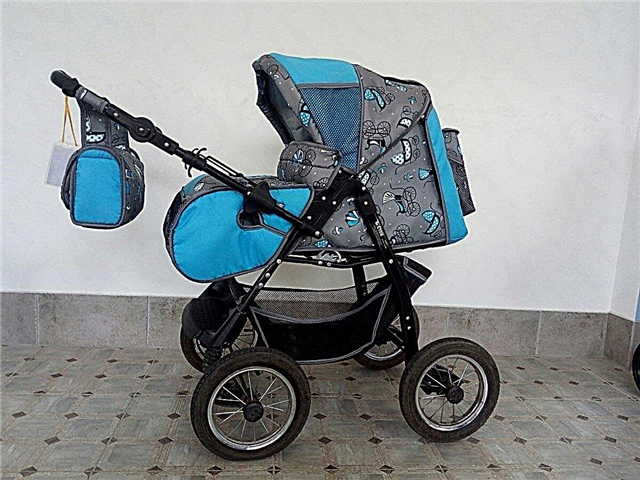It is common for a newborn child in the first days and months of life to cry, be capricious and hysterical. What to do in such a situation? How to calm a child down? Let's figure it out together.
Adults express emotions with words and facial expressions, but a newborn has to use screaming or crying about any changes in his state: after all, he does not know how to talk yet. Anyone who is constantly with the baby (usually a mother or nanny) must learn to distinguish by the nature of the "sound signals" emitted by the child, what exactly is bothering him at this moment and how to help him cope with the problem. How and what reason "sounds" can be recognized if you show a little attention and sensitivity to the baby.

What to do first?
As soon as the baby starts to whimper, mom should know what to do:
- Take it easy. It is not difficult for experienced mothers with many children to do this, but if a woman has a first-born, it is necessary to learn how to quickly pull herself together, not succumbing to emotions. This is easier said than done: after all, some children can cry all the time, which is very exhausting for both the child and the adults around him. If at the moment there is a husband or other family member next to you, give them the baby for a couple of minutes (this time is just enough for you to calm down), leave the room and breathe deeply. Now your task is to help the newborn return to its former comfortable state.
- Determine the reason for crying. Dissatisfaction with the crumbs can cause anything: from the desire to eat to pain in the tummy. It is necessary to eliminate the causes of crying in stages, one by one, until you find something that interfered with the child.
- Eliminate the cause of the worry. The ability to recognize the desires and state of the baby by his crying and behavior leads to the fact that the mother learns to quickly calm her baby and cope with the problem of his discomfort.
The main thing is to always react to any manifestation of anxiety on the part of the crumbs: he never cries for no reason. The cry helps the baby to signal to the mother about any discomfort: hunger, heat, wet diapers, pain, etc. And you, as the person closest to him, simply must understand your child, no matter how difficult it may seem at first.

Causes of anxiety in infants
The most common annoying factors for a newborn baby are:
- hunger,
- accumulated air (gaziki) in the stomach,
- wet diapers or a leaky, overflowing diaper,
- cold (hypothermia) or heat (overheating),
- folds in clothes or diapers,
- colic in the stomach
- overexcitement or overwork
- fear of something or someone
- cutting teeth,
- pain due to vaccine or illness.
So there are more than enough reasons for the crumbs to show concern.
Doctor Komarovsky talks about the causes of crying
How to calm your baby
Sifting out one by one the reason for the discomfort of the crumbs, you can find exactly what worries him and interferes with being calm and happy at the moment. And a knowledgeable mother can definitely solve the problem.
1. If the child is hungry
In Soviet times, our mothers and grandmothers breastfed their children by the hour. Modern pediatricians and psychologists strongly recommend that mothers feed their newborns at his first request. Often, a baby's whimpering indicates hunger. You just need to give him the breast (and in the case of artificial nutrition - a bottle of formula). All babies constantly need maternal warmth and attention, so the nipple for them is not only nutrition, but also a kind of way of realizing that the closest and dearest person is nearby. Even if the hunger is not that strong.
2. If after feeding the newborn swallowed air with milk
After feeding, it is best to hold the baby in a "column" for some time, pressing the whole body against you, put the baby's chin on the mother's shoulder and tap him lightly on the back. If he did not vomit in time, and the air remained inside, this can interfere with the baby, causing discomfort. As soon as the air (gases) come out, the anxiety of the baby will pass.

3. If the baby is uncomfortable because of the feeling of dampness
Even the highest quality and most expensive diaper needs to be changed every 4 hours, and in the case of an act of defecation - immediately after it. With diapers, you will have to do this many times more often. Therefore, as soon as the grunting of the child is heard, it is worth checking if he is wet, if the diaper has pooped and is not overfilled.
4. If the temperature is uncomfortable. The child is stuffy or cold
When a newborn is stuffy or cold, he necessarily reacts to this with unhappy crying. Overheating and hypothermia are very harmful for the baby due to the immature heat exchange system. In the first month, from the point of view of physiology, the baby is not at all able to retain heat. Therefore, pay attention in time to whether there are a lot of clothes on him in a stuffy room or whether he is cold if the room is cool. Be sure to give up synthetics in children's clothes. Do not forget to often ventilate the child's room, but do not allow drafts.
5. Buttons on clothes or folds in diapers can be unpleasant for your baby.
All baby diapers and clothes should be soft, made from natural materials, without pellets and folds. Babies under the age of 1 month in underwear (little men, undershirts, sliders) should not have accessories (buttons, hooks or zippers). For such children, even the seams on things are made outward. If, nevertheless, it is the clothes or the crumpled diaper that caused the child's discomfort, you just need to change or swaddle him, then shake him to calm him down. Some children are well helped by tight swaddling (with handles): the baby associates it with tightness in the mother's tummy.
6. If the baby is overexcited and cannot sleep
It often happens that the emotions received by the newborn (in communication with other relatives or guests of the house) prevent him from sleeping peacefully. Such over-excitement will also lead to whims. Simple actions before bed help to tune in to restful sleep:
- evening walk in the fresh air,
- bathing,
- light massage,
- motion sickness in a crib or stroller,
- chest or dummy
- slow and quiet pleasant melody, lullaby or even monotonous sound,
- a mobile over a bed or stroller with cute animals and calm music,
- hissing, wiggling ... etc ... ways to calm an infant before bed, mass.
The same methods can be used when an infant is overworked if he slept a little during the day. All repeated children's whims for the night are effectively eliminated thanks to the adjusted daily routine.
7. If the baby is scared when left alone in the room
When the mother, having put the baby to bed, leaves the nursery, the child may wake up. And as soon as he does not find his own little man nearby, he begins to show concern. So that the whining does not have time to turn into a scream, you need to return to the child's room as soon as possible and shake him. If this does not help, take the baby in your arms.
And a couple more useful tips. From birth to 3 months, babies calm down faster from techniques that remind them of intrauterine life: sucking, swinging, hissing, laying on the side in a fetal position and swaddling. And starting from three months, babies are already able to switch attention from one object to another and look at it for a long time. Colored paper, balloons, rattles, bright pictures in a book will help him to distract himself, and soon he will forget why he started this whole concert.
An experienced pediatrician at the Zdorovye Pokolenie clinic, Candidate of Medical Sciences - Natalya Konstantinovna Bishevskaya will share a unique soothing technique. Use these few seemingly simple steps and you can create a comfortable environment, similar to prenatal, in which your baby will quickly stop crying and fall asleep, almost like magic!
How to calm a newborn baby for colic
Intense hysterical crying with a typical child's curling of the legs and a hard, swollen tummy most often indicates colic. Usually they are observed every day in the evenings and become a real tragedy for mothers, who are powerless in front of a long cry of crumbs. There are several proven ways to reduce abdominal pain in a child due to the immaturity of his gastrointestinal tract:
- Place the baby on his back and use closed fingers to massage the tummy. It is important to control the force of pressure, to massage gently, strictly clockwise, avoiding the liver and navel area.
- Apply warmth to the newborn's tummy. A clean cloth or blanket warmed on a radiator (or iron) will do.
- Place the baby in a sling, exposing your belly and him, walk around the room, softly humming a lullaby. The hissing in the ear also helps: this sound reminds children of the mother's blood flow and breathing when the child was still developing in her womb.
- Conservative methods are not always able to cope with colic. And when all the means have already been tried, and the baby is still tormented by excessive gas formation, it is worth seeking help from an experienced pediatrician: he will prescribe suitable safe drugs. For example, Riabal and Espumisan in syrup form or fennel tea.

Mothers who are breastfeeding should definitely control their diet: the baby may react to certain foods (for example, peas, cabbage or peaches), and then they will have to be temporarily excluded. It happens that this or that mixture is not suitable for artificial people, and then it also needs to be replaced.
How to calm an infant during illness
If none of the attempts to calm the baby down has become successful, you need to pay attention to the presence of additional signs that indicate the onset of the disease:
- increased body temperature,
- inflammation and redness of the mucous membranes of the nose, throat and eyes,
- rash on the face or body.
1. Teething: During the period of teething, pain in the gums can be reduced by giving the baby a chilled teether toy or special medications for children for toothache and itching (for example, Calgel or Dentinox-N). They come in the form of gels, which are applied in small quantities to the inflamed gums of the child.
2. Otitis media: Harsh, continuous crying can be due to otitis media if the remains of breast milk or formula got into the ear canals and caused inflammation in the ear. The pain with such a diagnosis is so strong that babies even refuse to breast, because sucking is also painful for them. You can check if everything is in order with the ear by pressing your finger on the cartilaginous protrusion at the base of the ear. If the baby jerks his head and screams, immediate consultation with a pediatrician or pediatric otolaryngologist is necessary. Nurofen syrup relieves pain before an appointment with a doctor (you need to take it according to the dosage indicated in the instructions).
3. Vaccination: After vaccination, the injection site may also be sore, hot, or swollen. In such cases, doctors recommend that mothers give the child Nurofen and an antihistamine (for example, Fenistil) on the day of vaccination and the next day after it.
Remember! it is impossible to get carried away with drugs for no apparent reason: they are prescribed exclusively by the doctor in certain doses according to the baby's disease, his condition and age.
It happens that the despair of mothers due to daily children's tantrums or screams turns into real depression and self-criticism. You do not need to look for the reason in yourself, just calm down (after all, your nerves and anxiety are transmitted to the crumb) and understand: sooner or later you will definitely learn to quickly understand your beloved baby.
- How to calm down a crying child (31 tips. Part 2). + 5 steps according to Harvey Karp's method
- How to calm a crying baby - nine tried and tested tips
- How to put a child to sleep without tears and whims



